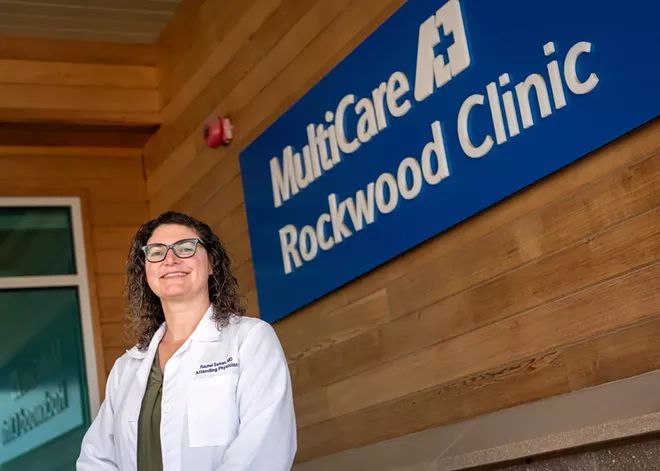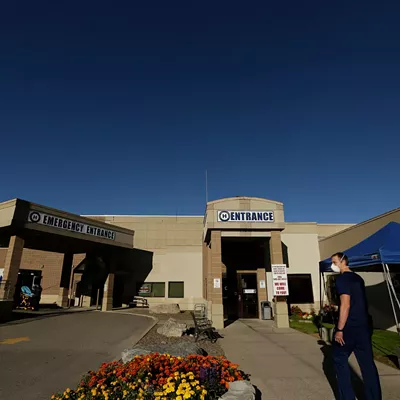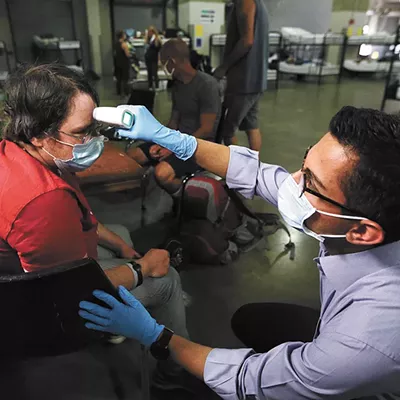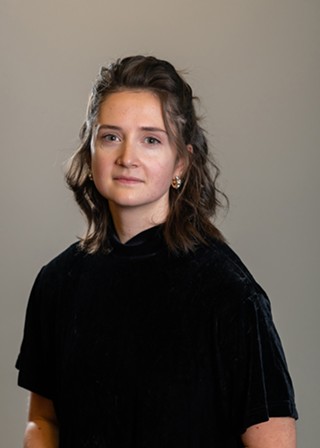It was the early 1990s, and Bill had gotten some routine blood work done at the DeBakey Veterans Affairs Medical Center in Houston.
"The Houston VA sent me a postcard that said, 'We found something in your blood work that we need to discuss with you. Please schedule an appointment,'" he recalls. "I never scheduled that appointment. I did not want to know."
Bill suspected he already knew what they had found. He had been relying on his Christian faith instead of safe sex practices to protect him from HIV. It wasn't until three years later that he confirmed the diagnosis in San Francisco.
"I was doubly diagnosed that day with HIV and Type II diabetes," Bill says. (Due to ongoing stigma, Bill asked to be referred to only by first name.)
"I was more concerned about the diabetes diagnosis than I was the HIV diagnosis, because this was right at the time the cocktails had just come out. Everybody's life was changing because of them."
HIV "cocktails" were a breakthrough combination of drugs that slowed the replication of the virus in the body. Bill's life was drastically improved because of the new medications.
Today, Bill is 72 and living in Spokane. He is part of a growing demographic of people growing older with HIV. In the 1980s, a diagnosis of human immunodeficiency virus, which could lead to acquired immunodeficiency syndrome, or AIDS, was often a death sentence for young people. But according to the Centers for Disease Control and Prevention, there are now more than 1 million people over 50 living with HIV in the U.S.
That unprecedented demographic is predicted to grow — by 2030, it's expected that patients over 50 will make up about 70% of the HIV positive population.
Since elderly HIV patients are relatively new to the medical field, doctors have yet to understand how different medications that are commonly needed with age interact with HIV drugs, or how HIV affects heart disease, kidney disease, depression or dementia.
Luckily, local physicians such as Dr. Rachel Safran are helping find answers through drug trials and research studies to improve the aging process for people with HIV. Safran is a primary care physician at MultiCare's Rockwood Clinic, as well as the HIV research lead for the MultiCare Institute for Research and Innovation.
Bill is one of her patients and an enthusiastic drug trial participant. Because medication has changed his life, he says he's dedicated to participating in new drug studies that can help doctors better understand the disease and treatment options.
"As long-term survivors of HIV/AIDS, we still don't know how this is going to affect us," Bill says. "I have to give what's been given to me. I have been given life. I have been given happiness. I have been given wonderful friends and family that still love me no matter what."
When Safran first started caring for HIV patients, she says doctors held off on providing treatment because the medication was so toxic. But today, the options are so much safer that a prescription can be offered the same day as a diagnosis.
"The other half of that is because those medications are so much safer and easier to take — I'm talking about a difference of 12 pills a day to one pill a day, or even injections every few months — it is much easier for people to stay on treatment and be willing to stay engaged in care," she says. "We know that's how people can live longer — by actually being able to remain treated long term."
But staying in care over time presents new challenges. Elderly patients often have to take multiple medications for different conditions, so Safran is working to understand how new HIV treatments interact with other drugs.
"We have complicated databases and tools online to help us every day check for those interactions and adjust doses," Safran says. "If a health care provider isn't well-versed in HIV, it can be really overwhelming because the drugs are changing so constantly."
Even though the life expectancy for people living with HIV is now similar to those living without it, research has shown that people with HIV often have a reduced quality of life for the last decade or two of their lives. But doctors don't know which comorbidities HIV positive patients are more likely to suffer from.
"People with HIV didn't live to 50 that long ago for us to even know what to be looking for," Safran says. "So we are rapidly learning about how [for example] heart disease develops differently and what different cancers they might be at risk for."
While working to understand the physical challenges of aging with HIV, doctors are also starting to see that these patients are more at risk for mental health and medical burnout. Caring for HIV, a heavily stigmatized disease, can often be more emotionally exhausting for a patient than treating other chronic illnesses.
"A lot of people have guilt and shame about being a survivor," Safran says. "That adds complexity to managing a condition when they're reminded of it every day, even if they are doing well and healthy. ... I have quite a few patients who take 10 pills in a day — maybe one HIV pill, diabetes medication, something for high blood pressure. They will tell me that although they are burned out by all their pills and all their appointments and their blood draws, taking the HIV medication and seeing those lab results, even if they're good ones, is possibly the biggest burden."
Safran's work is also focused on bettering community health.
"In general, the safer and easier it is to take a medication, the more likely someone is to take it, and that's really how we'll help prevent future transmission," she says. "That's really a pillar of that strategy to end the epidemic — to get everyone who does have HIV to know their status and be treated, because we know if someone can get their virus to an undetectable level with our medications, that they are untransmittable."
There are new HIV cases in Spokane every month, Safran says. Research from 2023 estimates that about 1,000 people in Spokane County are living with HIV. But it's not a diagnosis that Bill thinks anyone should run away from.
"This is no longer a death sentence," Bill says. "I'm very grateful for the scientists and the doctors who have dedicated their lives to helping me have a more full life." ♦
























